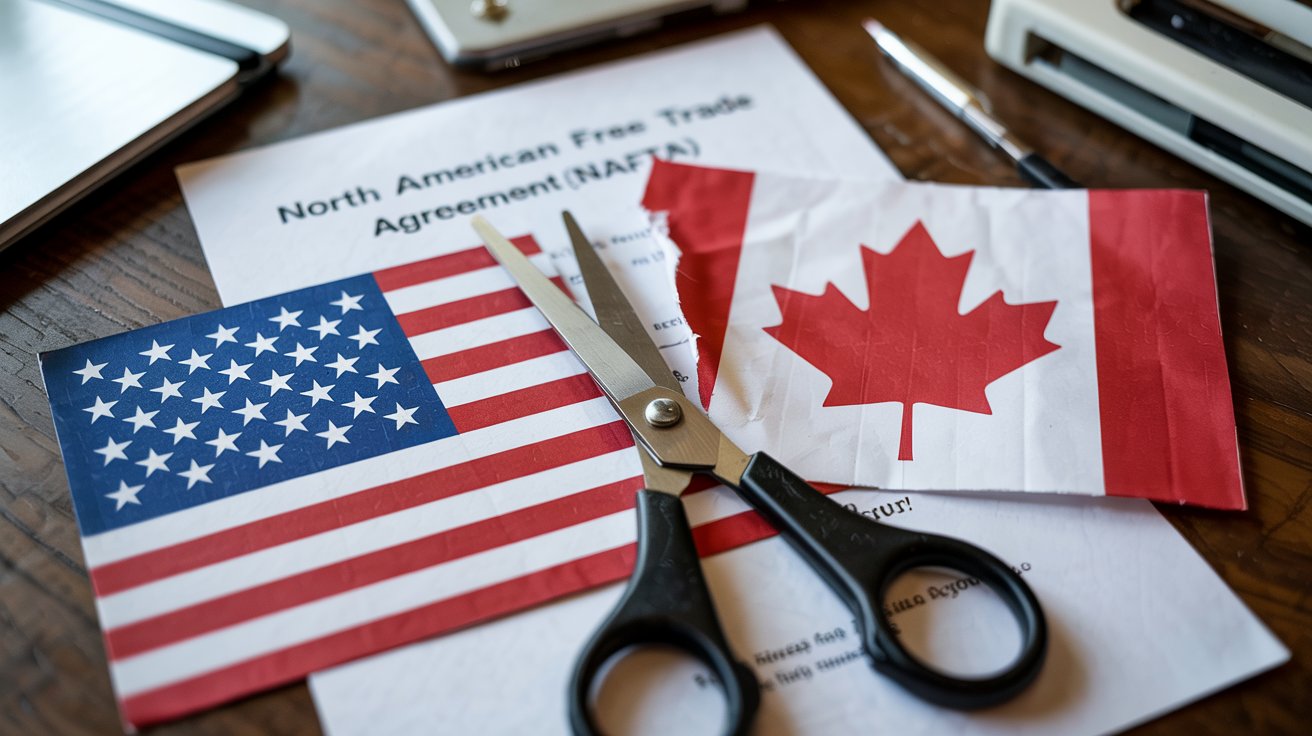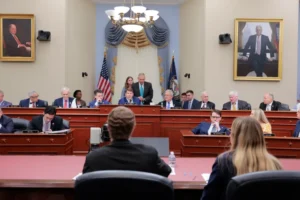2025 U.S.-Canada Trade War Timeline: Key Events, Shocking Moves, and What It Means for America is a crucial moment in modern U.S. trade policy, revealing how high-stakes politics and global economics collide to impact everyday Americans.
What Is the 2025 U.S.-Canada Trade War and Why It Matters
This section explains the root causes of the 2025 U.S.-Canada Trade War—starting with the newly implemented “America First Trade Policy” and how it triggered a domino effect of retaliatory measures. We break down how the policies of two neighboring allies quickly escalated into economic warfare.
🇺🇸 Why it matters: The effects go far beyond politics—higher prices, job losses, and supply chain shocks are hitting American consumers directly.
Step-by-Step Breakdown of Key Trade War Events
Here, we guide you through a simplified, date-based timeline of the trade war’s major turning points. Each event is summarized with what happened, who was affected, and how it altered the U.S.-Canada relationship.
Major Events
| Date | Key Action | Impact on America |
|---|---|---|
| Jan 20, 2025 | “America First Trade Policy” signed | Signals new trade restrictions |
| Feb 1, 2025 | 25% U.S. tariff on Canadian goods | Raises consumer prices |
| Feb 2, 2025 | Canada retaliates with $30B in tariffs | Hurts U.S. exporters |
| Mar 12, 2025 | U.S. targets Canadian steel/aluminum | Increases costs for U.S. manufacturers |
| Apr 3, 2025 | Canada targets U.S. cars not USMCA-compliant | U.S. auto sector faces major disruption |
| Apr 7, 2025 | Canada files WTO dispute | Legal conflict adds to long-term instability |
The Most Shocking Trade War Moves That Shifted the Landscape
In this section, we highlight the 3 most dramatic decisions in the trade war that turned routine policy disagreements into an international economic conflict.
The Escalation Spiral
U.S. Tariffs (Feb 1)
↓
Canada Retaliation (Feb 2)
↓
Steel & Auto Tariffs (Mar 12–Apr 3)
↓
WTO Legal Dispute (Apr 7)
This map shows how one decision led to another, quickly spiraling into a full-blown trade war with global economic implications.
How the Trade War Affects American Jobs, Businesses, and Prices
Here we explain, in simple terms, how these international decisions affect U.S. citizens on a local level:
- Auto Industry: Factories in Michigan and Ohio report a 15–20% drop in productivity due to Canadian retaliation.
- Prices Rising: Steel and aluminum costs are up 30% since March, directly impacting housing, automotive, and appliances.
- Job Risk: The Economic Policy Institute warns that up to 120,000 U.S. jobs could be at risk in Q2 and Q3 2025.
This makes the trade war personal—connecting big-picture decisions to real-world consequences for the average American.
What the WTO Dispute Means and What Happens Next
Here we break down Canada’s April 7 filing at the World Trade Organization (WTO) into simple terms:
- Why Canada Filed: Canada claims U.S. tariffs violate international trade agreements (specifically USMCA terms).
- What It Could Lead To: WTO may issue rulings that further limit U.S. trade power or allow Canada to enforce additional sanctions.
- Why It Matters: A WTO ruling could shape trade rules for years and reduce U.S. influence in global commerce.
Winners vs. Losers of the Trade War (So Far)
| Stakeholder | Outcome in 2025 |
|---|---|
| U.S. Consumers | Prices rising on imported goods |
| U.S. Manufacturers | Increased input costs, job cuts |
| Canadian Exporters | Temporary loss of U.S. market access |
| Politicians | High approval among protectionist voters |
| WTO & Global Markets | Rising influence and attention |
Conclusion: The 2025 U.S.-Canada Trade War Has Just Begun
The 2025 U.S.-Canada Trade War has already reshaped trade dynamics between two of the world’s closest allies. But the road ahead remains uncertain. From rising prices and disrupted industries to ongoing WTO disputes, this story is far from over.
More than 120,000 U.S. jobs and billions in trade value are at stake. As tensions escalate, staying informed is critical—not just for policymakers, but for every American affected by the decisions made in Washington and Ottawa.
[USnewsSphere.com / reu]





